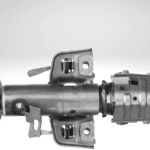
60+ Warehouses Across USA ⇔ 3-5 Business Days Delivery ⇔ Call (866) 218-5898


Driving Towards Sustainability: A Look at Sustainable Practices in the Auto Parts Industry
As concerns about environmental impact continue to grow, industries around the world are increasingly adopting sustainable practices to reduce their carbon footprint and preserve natural resources. The auto parts industry is no exception, with manufacturers and suppliers alike exploring ways to minimize waste, promote recycling, and adopt eco-friendly processes. In this article, we’ll delve into the concept of sustainability in the auto parts industry, exploring what it means and how it affects the production and distribution of auto parts. Plus, learn how sourcing quality parts like used ABS modules, used transmissions, and used steering columns from 50 Stars Auto Parts can contribute to a more sustainable automotive ecosystem.
- Recycling and Reuse: Sustainable practices in the auto parts industry often involve recycling and reusing materials to minimize waste and conserve resources. Manufacturers and suppliers may prioritize recycling programs for materials like metals, plastics, and rubber, diverting them from landfills and reducing the need for virgin materials.Solution: By choosing to purchase used auto parts like ABS modules, transmissions, and steering columns from 50 Stars Auto Parts, customers contribute to the recycling and reuse of automotive components. These parts are salvaged from vehicles and refurbished for resale, extending their lifespan and reducing the demand for new parts.
- Energy Efficiency: Energy-efficient manufacturing processes and facilities play a key role in promoting sustainability in the auto parts industry. Companies may invest in energy-saving technologies, renewable energy sources, and energy-efficient equipment to minimize their carbon footprint and reduce greenhouse gas emissions.Solution: 50 Stars Auto Parts is committed to sustainable practices, including energy-efficient operations and eco-friendly packaging. By choosing to purchase from 50 Stars, customers support a company that prioritizes sustainability and environmental responsibility.
- Lifecycle Assessment: Sustainable practices in the auto parts industry also involve conducting lifecycle assessments to evaluate the environmental impact of products from production to disposal. This holistic approach helps identify areas for improvement and informs decision-making to minimize environmental harm.Solution: 50 Stars Auto Parts considers the lifecycle impact of its products and strives to minimize environmental impact throughout the supply chain. By providing quality used auto parts, 50 Stars extends the lifespan of automotive components and reduces the need for new production, thus lowering overall environmental footprint.
Sustainable practices in the auto parts industry are essential for reducing environmental impact and promoting a greener future. By prioritizing recycling, energy efficiency, and lifecycle assessments, manufacturers and suppliers can contribute to a more sustainable automotive ecosystem. Plus, by choosing to purchase quality used auto parts like ABS modules, transmissions, and steering columns from 50 Stars Auto Parts, customers play a vital role in supporting sustainable practices and reducing waste. Join us in driving towards a more sustainable future for the auto parts industry and beyond.
Add a comment Cancel reply
Comments (0)
Related posts


Green Roads: How Recycling Auto Parts Reduces Your Carbon Footprint

Green Driving: The Environmental Benefits of Choosing Used Auto Parts
About Us
At "50 Stars Auto Parts", we're more than just a company; we're your trusted partner on the road to automotive excellence. With a commitment to quality, customer satisfaction, and a passion for all things automotive, we've been proudly serving our community.
Quick Links
Follow Us On
Popular Product Fleet
Our Delivery Partners


Contact Info
- +1 (866) 218-5898
- +1 (866) 218-5898
- service@50starsautoparts.com
- 50starsautoparts.com
- 910 S. Pearl Expressway, Dallas, Texas, 75201
Pay Securely With


Copyright © 2025 - 50 Stars Auto Parts All Rights Reserved





